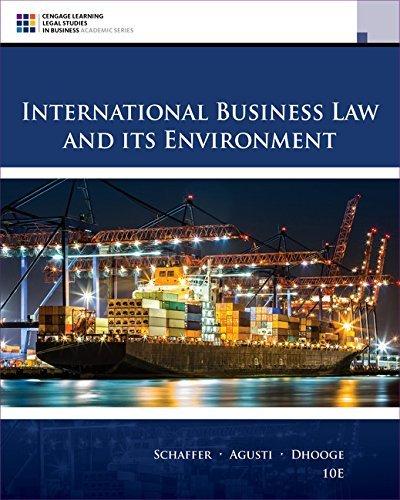On May 4, 2006, Argentina brought a complaint before the ICJ against Uruguay. Argentina alleged that Uruguay
Question:
As a basis for the ICJ's jurisdiction, Argentina cited Article 60 of the 1975 treaty, which allows submission to the ICJ if the parties fail to settle the dispute through negotiations. Discussions between the presidents of the two countries and among members of a technical group had failed to resolve the issue in 2006.
1. The court found that Uruguay violated its procedural duties to provide notice and seek agreement with Argentina before launching on the project, and then it argued that it was disproportionate to dismantle the pulp mills as a remedy for its violation. Did Uruguay then benefit from proceeding with construction without seeking consent? How might Argentina have prevented this from happening?
2. Was Argentina able to show that Uruguay's new mills were polluting in violation of the treaty? What would have happened if Argentina had been able to prove that?
3. The court imposed a duty to cooperate in monitoring ongoing pollution. Did such a duty not already exist? What do you think will happen as a result of this future monitoring?
Fantastic news! We've Found the answer you've been seeking!
Step by Step Answer:
Related Book For 

International Business Law And Its Environment
ISBN: 9781305972599
10th Edition
Authors: Richard Schaffer, Filiberto Agusti, Lucien J. Dhooge
Question Posted:





